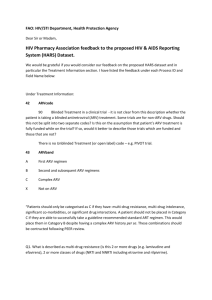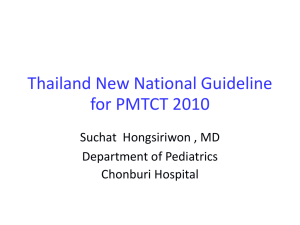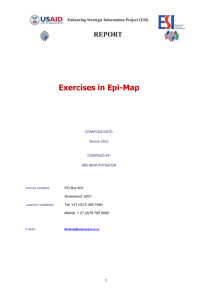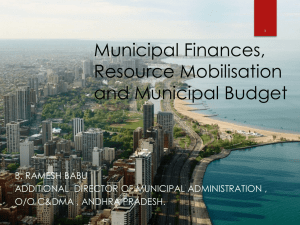Finding The Solutions for ARV Procurement and
advertisement
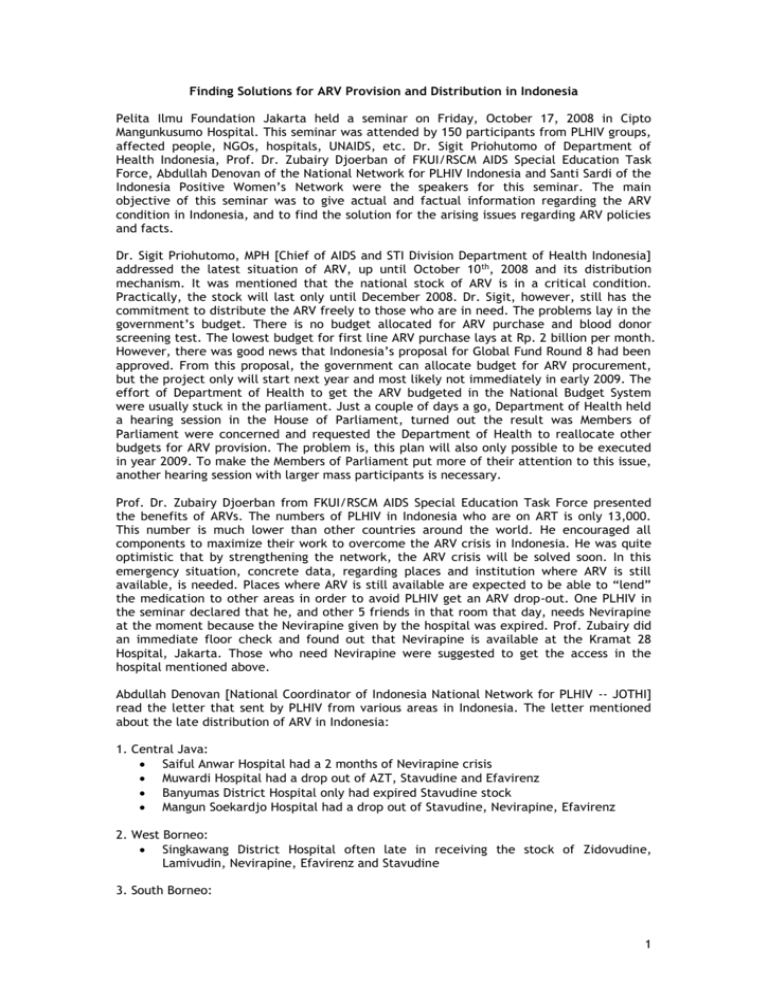
Finding Solutions for ARV Provision and Distribution in Indonesia Pelita Ilmu Foundation Jakarta held a seminar on Friday, October 17, 2008 in Cipto Mangunkusumo Hospital. This seminar was attended by 150 participants from PLHIV groups, affected people, NGOs, hospitals, UNAIDS, etc. Dr. Sigit Priohutomo of Department of Health Indonesia, Prof. Dr. Zubairy Djoerban of FKUI/RSCM AIDS Special Education Task Force, Abdullah Denovan of the National Network for PLHIV Indonesia and Santi Sardi of the Indonesia Positive Women’s Network were the speakers for this seminar. The main objective of this seminar was to give actual and factual information regarding the ARV condition in Indonesia, and to find the solution for the arising issues regarding ARV policies and facts. Dr. Sigit Priohutomo, MPH [Chief of AIDS and STI Division Department of Health Indonesia] addressed the latest situation of ARV, up until October 10 th, 2008 and its distribution mechanism. It was mentioned that the national stock of ARV is in a critical condition. Practically, the stock will last only until December 2008. Dr. Sigit, however, still has the commitment to distribute the ARV freely to those who are in need. The problems lay in the government’s budget. There is no budget allocated for ARV purchase and blood donor screening test. The lowest budget for first line ARV purchase lays at Rp. 2 billion per month. However, there was good news that Indonesia’s proposal for Global Fund Round 8 had been approved. From this proposal, the government can allocate budget for ARV procurement, but the project only will start next year and most likely not immediately in early 2009. The effort of Department of Health to get the ARV budgeted in the National Budget System were usually stuck in the parliament. Just a couple of days a go, Department of Health held a hearing session in the House of Parliament, turned out the result was Members of Parliament were concerned and requested the Department of Health to reallocate other budgets for ARV provision. The problem is, this plan will also only possible to be executed in year 2009. To make the Members of Parliament put more of their attention to this issue, another hearing session with larger mass participants is necessary. Prof. Dr. Zubairy Djoerban from FKUI/RSCM AIDS Special Education Task Force presented the benefits of ARVs. The numbers of PLHIV in Indonesia who are on ART is only 13,000. This number is much lower than other countries around the world. He encouraged all components to maximize their work to overcome the ARV crisis in Indonesia. He was quite optimistic that by strengthening the network, the ARV crisis will be solved soon. In this emergency situation, concrete data, regarding places and institution where ARV is still available, is needed. Places where ARV is still available are expected to be able to “lend” the medication to other areas in order to avoid PLHIV get an ARV drop-out. One PLHIV in the seminar declared that he, and other 5 friends in that room that day, needs Nevirapine at the moment because the Nevirapine given by the hospital was expired. Prof. Zubairy did an immediate floor check and found out that Nevirapine is available at the Kramat 28 Hospital, Jakarta. Those who need Nevirapine were suggested to get the access in the hospital mentioned above. Abdullah Denovan [National Coordinator of Indonesia National Network for PLHIV -- JOTHI] read the letter that sent by PLHIV from various areas in Indonesia. The letter mentioned about the late distribution of ARV in Indonesia: 1. Central Java: Saiful Anwar Hospital had a 2 months of Nevirapine crisis Muwardi Hospital had a drop out of AZT, Stavudine and Efavirenz Banyumas District Hospital only had expired Stavudine stock Mangun Soekardjo Hospital had a drop out of Stavudine, Nevirapine, Efavirenz 2. West Borneo: Singkawang District Hospital often late in receiving the stock of Zidovudine, Lamivudin, Nevirapine, Efavirenz and Stavudine 3. South Borneo: 1 From 5 referral hospitals, only 2 hospitals are active: Ulin Banjarmasin District Hospital [with 7 patients on ART] and Anshari Shaleh District Hospital [with 8 patients on ART] There was once a Nevirapine drop out for a week because the late shipping from Jakarta 4. Papua: Jayapura District Hospital had a Nevirapine drop out Abepura District Hospital had a Tenovofir drop our The Department of Health claimed the ARV distribution to Papua never involved Department of Health. Other report also came from Maluku, East Java, West Java, NTT, West Sumatra, Bali. In this seminar, JOTHI came up with statement: 1] The ARV distribution mechanism has to be improved immediately 2] The finance management of Department of Health has to be transparent 3] All Departments in Indonesia has to publish their annual report in the mass media 4] Full investigation on budget utilization in the National Budget System, especially the Public Health sector Santi Sardi [National Coordinator of Indonesia Positive Women’s Network – IPPI] addressed the importance of ARV prophylaxis to reduce the transmission risk from mother to child. She shared the story about a pregnant woman in West and North Sumatra who got an ARV drop out. The participants addressed several issues during the discussion: Expired ARV The habit of lending ARV inter hospital or PLHIV The budget needed for ARV purchase per year Advocacy to the House of Parliament In the future, it is expected that the Free ARV policy is no longer possible. A transition plan is needed ARV stock management system Conclusions: Lack of financial support from the government had lessen the ARV provision A strengthening effort between institutions, hospitals and PLHIV is needed to overcome the ARV crisis during the transition and emergency period Another hearing session with Members of Parliament will be held soon to address the concern of ARV crisis. The delegates will be led by Prof. Dr. Zubairy Djoerban as the chief of Civil Society Cares for AIDS Indonesia and facilitated by Esthi Susanti from Civil Society Cares for AIDS East Java. Prof. Dr. Samsuridjal Djauzi will send a letter to the Minister of Health Indonesia Indonesia had been facing a crisis in ARV provision and distribution for quite a while now. This situation was also added on by the fact that expired ARVs are being distributed widely in most areas of the country. So, not only the stock is short, but also, most likely, the available stock is the expired ones. And since the government of Indonesia does not allocate any budgets for ARV purchasing in the National and Local Budgeting System, the provision of ARV is depending so much to the Global Fund money. During the transition time to the next round of Global Fund such as now, the community has to work on the emergency plan in providing sufficient funds to cover the expenses of ARV purchasing. On Monday, October 20th, 2008 the doctors of Cipto Mangunkusumo Hospital [RSCM] had collected some funds through personal donations. The amount had reached Rp. 5 million [about USD 550]. Pelita Ilmu Foundation had collected Rp. 2,750,000 [about USD 300]. This amount is nothing compares to the funds needed for the ARV supply. The PLHIV community in Indonesia had declared the current situation as “ARV National Emergency” and sees the possibilities of opening various media for donation. Starting from donation boxes in the 2 hospital, public places to mass media and fund raising through various activities such as music, exhibition, auctions, sports, etc. With the help from Minister of Health, spare funds to cover the ARV purchasing up until March 2009 is now available from the government budget. But we are not looking for temporary solution. PLHIV in Indonesia needs sustainability in the provision of this therapy, and people are talking about continuity for life, not for a few months only. It is said that Indonesia needs at least Rp. 2 billion to cover the ARV purchase expenses in one year. If 400 institutions, NGOs, CBOs and support groups in Indonesia can collect Rp. 10 million of donations each, Indonesia will have Rp. 4 billion on hand. This is slightly difficult to achieve because most of the organizations and groups are small and have no access to financial resources. To get Rp. 10 million donations will be hard for them, especially those that are in the remote areas. When we talk about ARV production in Indonesia, we must talk about Kimia Farma, the state-owned pharmaceutical company that holds the license to produce the generic first line ARVs; Duviral [zidovudine and lamivudine], Neviral [nevirapine] and Triomune [zidovudine, lamivudine, nevirapine]. Surprisingly, Kimia Farma was not speaking in the seminar, considering there are thousands of bottle of ARV stock up in their store room. According to Pelita Ilmu Foundation, those ready ARVs are still there because Department of Health does not have the money to purchase them. By playing as “devil’s advocate”, the activists in Indonesia assume that if the House of Parliament agrees to commit, the Finance Minister will be able to find resources to cover the expenses for ARV purchasing, at least for a few more months until the Global Fund Round 8 started. More over, with the commitment from the House of Parliament, it is not hard to persuade Kimia Farma to distribute the stock, considering Kimia Farma is a stateown pharmaceutical company. But this has to be under the guarantee of Finance Minister and House of Parliament that the purchased items will be paid later. Other plan that also needs to be executed is to lobby all the local Department of Health to allocate some of the budget in the Local Budgeting System. The budget is posted under the “Drugs Purchasing Post” in the Local Department of Health budget, and some funds allocated in this post should be utilized as ARV purchase resource. Overall, the community needs to put more pressure on the government in order to get the allocation in the National Budgeting System for ARV purchasing. The dependency to Global Fund in ARV provision is not a strategic thing. A transition plan to handle the situation when the funding agency does not want to invest the money anymore has to be prepared. 3
